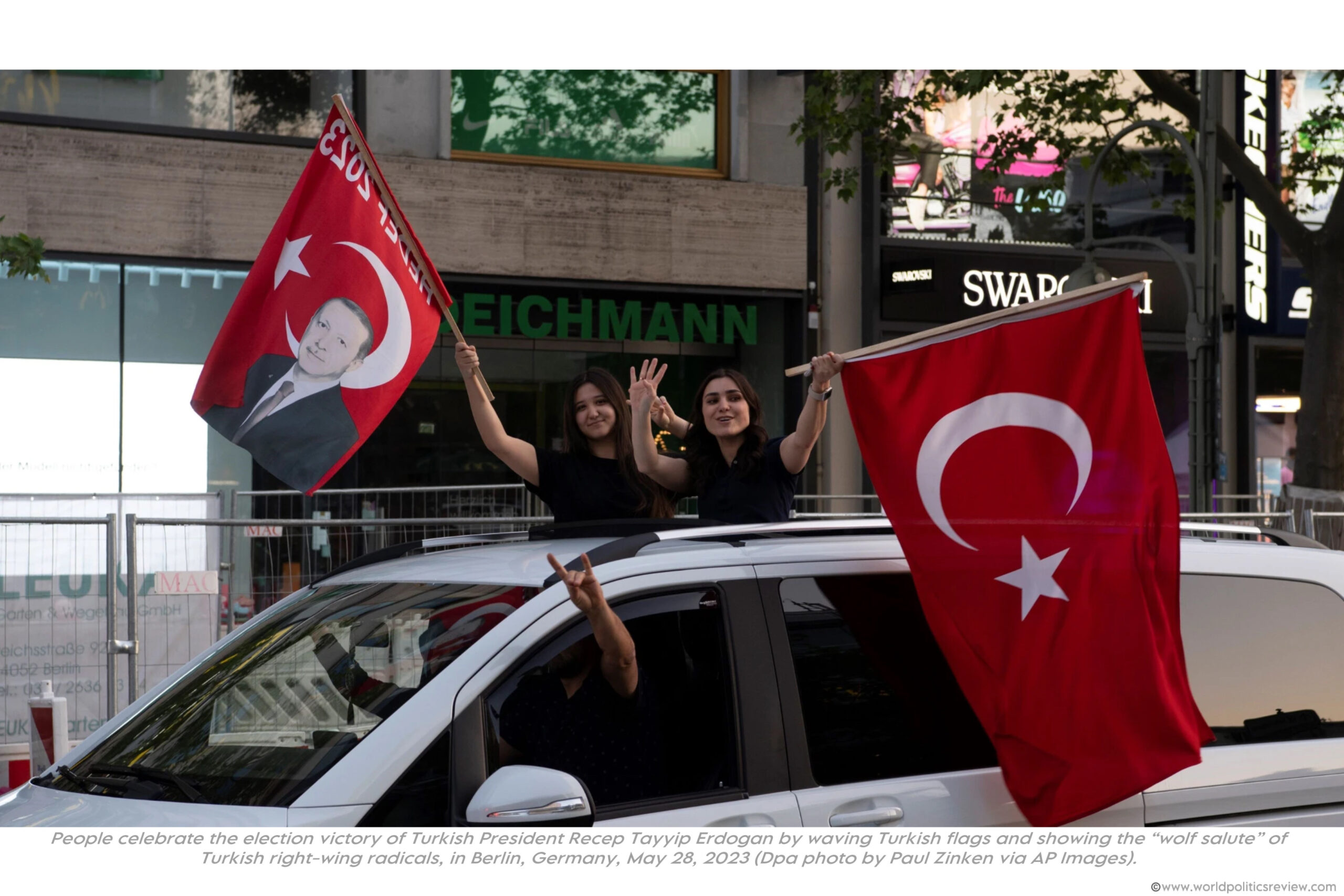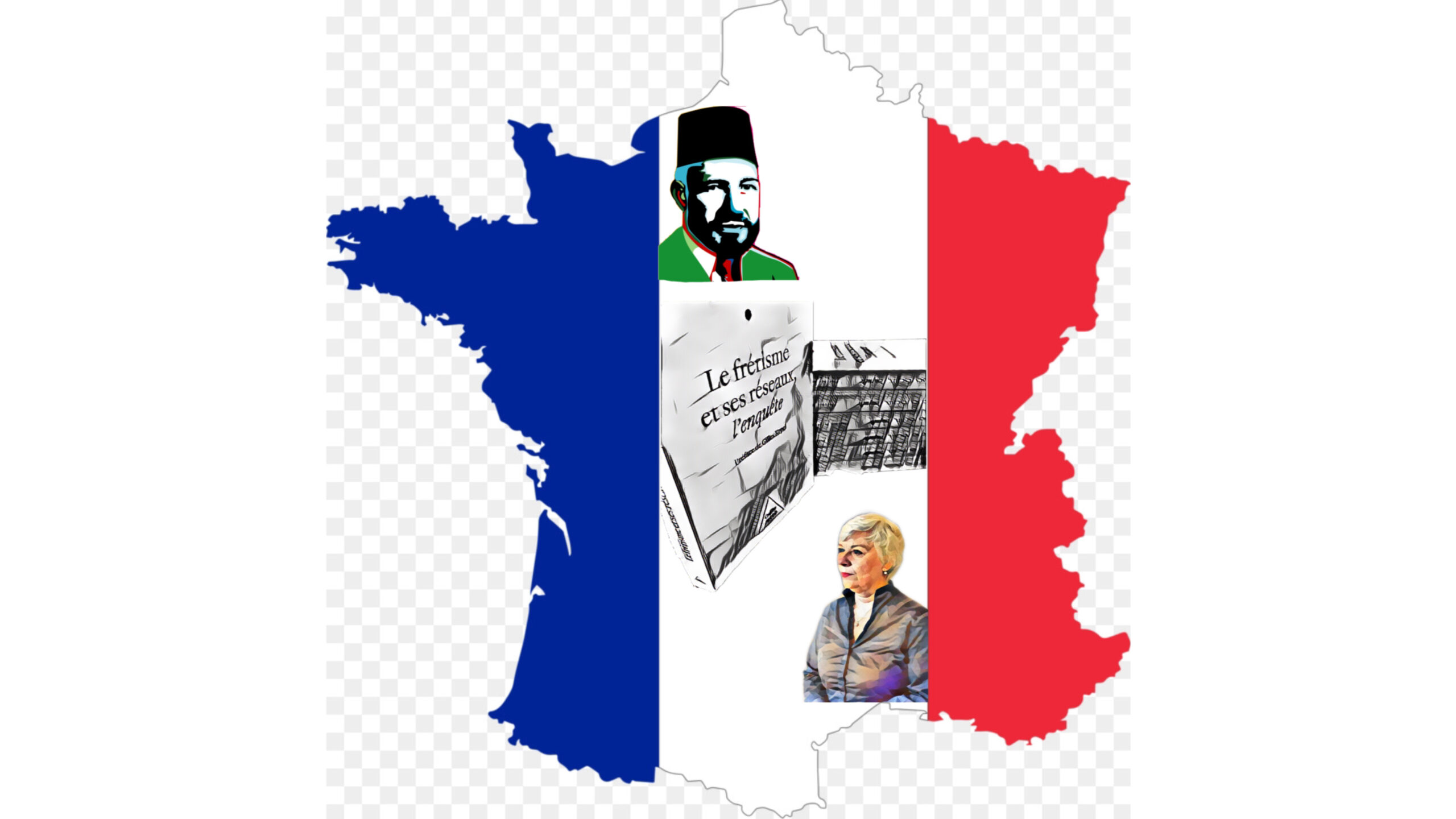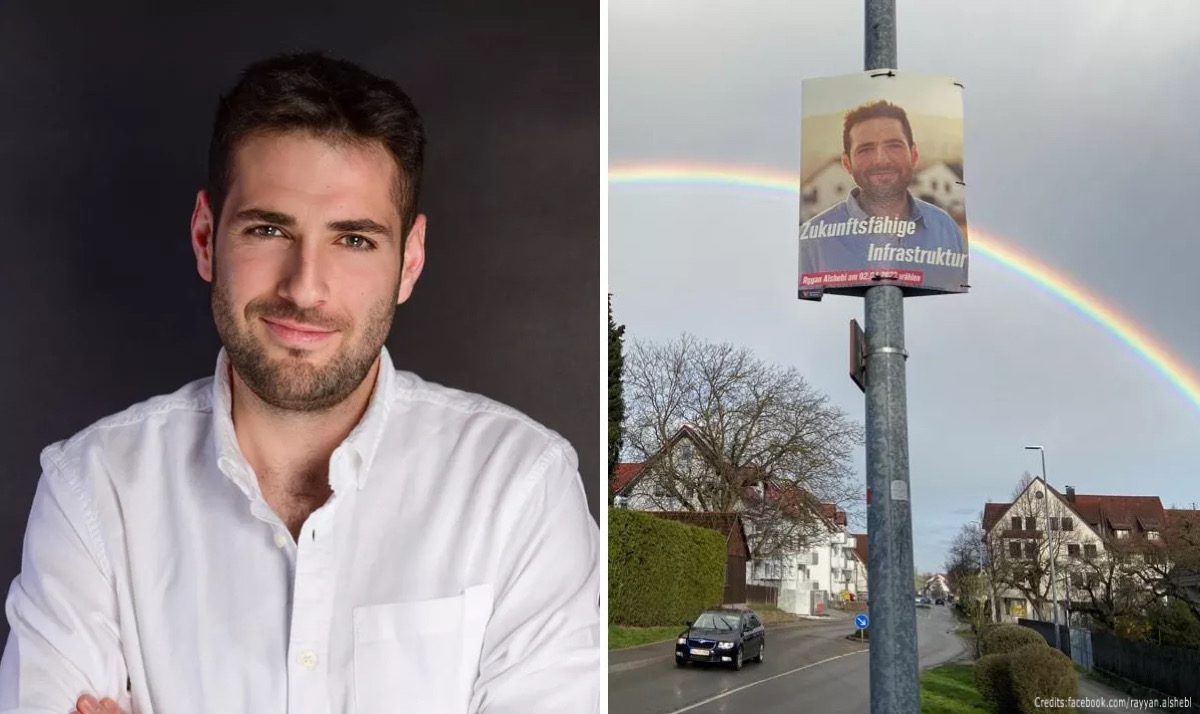Recep Tayyip Erdogan won the run-off election against his opponent, Kemal Kilicdaroglu, on 28 May 2023. He was elected president of Turkey for the third consecutive time in a heavily contested run-off election. With more than 99 percent of both domestic and international votes counted, Erdogan secured 52.16 percent of the vote, while Kemal Kilicdaroglu received 47.84 percent. Erdogan won 52 out of the country’s 81 provinces, one more than in the first round. Kilicdaroglu, however, repeated his first-round performance by winning Turkey’s biggest city, Istanbul, and the capital, Ankara. Domestic voter turnout in the run-off was approximately 85.7 percent, about 3 percent lower than in the first round on May 14. [fn]https://www.aljazeera.com/news/2023/5/29/how-did-turks-living-abroad-vote-in-turkeys-run-off-election[/fn]
The Turkish diaspora, particularly in Western Europe, played a significant role in the election. While the majority of Turks living in Eastern Europe, the UK, Asia, North America, and Oceania voted for Kilicdaroglu, Turks living in Germany, France, the Netherlands, Norway, and Denmark predominantly voted for Erdogan. In North African countries such as Egypt and Morocco, the vote for Erodgan was also predominant. In Germany, with a voter turnout of around 50 percent, Erdogan received 67 percent of the total 757,000 valid votes.[fn]https://www.statista.com/chart/30088/turkey-expats-voting-presidential-election/[/fn]
In total, more than 1.7 million out of the 3.4 million eligible Turks living abroad voted in the run-off election. Erdogan received 59.4 percent of the international votes, and Kilicdaroglu 40.6 percent.[fn]https://www.theguardian.com/world/2023/may/26/europes-turkish-diaspora-split-as-large-numbers-vote-in-election-runoff[/fn]. The difference was not only geographical but also generational: Older people among Europe’s 3.4 million Turkish voters showed strong support for Erdogan, while younger voters between the age 19-29 leaned towards Kilicdaroglu. The voting patterns of the Turkish diaspora also varied based on the size and establishment of communities. Bigger and more-established communities largely backed Erdogan, while smaller, newer communities supported Kilicdaroglu.
The largest Turkish diaspora in Western Europe resides in Germany: 2.8 million among whom around 1.5 million were eligible voters. 67 percent voted for Erdogan. [fn]According to the migration report publicized in 2019 by Germany’s Federal Office for Migration and Refugees/ Bundesamt für Migration und Flüchtlinge (BAMF), there are around 2.8 million people living in Germany with a Turkish migration background, and approximately half of them have Turkish citizenship.[/fn] In France which has a population of around 0.7 million Turkish migrants and 0.4 million voters [fn]https://www.bik.gov.tr/hangi-ulkede-kac-turk-vatandasi-yasiyor[/fn], Erdogan won 55.57% of votes. Other long-standing communities in the Netherlands, Denmark, and Belgium also favored Erdogan, with corresponding figures of 70.45 percent, 74.91 percent, 60.64 percent, and 60.47 percent, respectively. By contrast, support for Erdogan was less widespread in the United States, the United Kingdom, Iran, and Qatar. Kilicdaroglu secured more than 80 percent of the vote in the United States, Canada, the United Kingdom, and Southern and Eastern Europe.
The difference in voting patterns among the European Turkish diaspora can be attributed to various factors, including age, education, and religious background. Age plays a significant role in shaping the voting preferences of the diaspora. The voters from the younger age group (16-29 years) place less emphasis on the cultural or religious features of Turkish identity (culture/religion) than less educated respondents and those with less knowledge of the local language. The former also tend to be more supportive of European integration and less supportive of Turkish President Recep Tayyip Erdoğan’s view that Turks in Europe should “integrate but not assimilate.”
Education and knowledge of the local language also influence voting patterns. Those with limited knowledge of the local language tend to place more emphasis on their Turkish or Kurdish identity. This suggests that a stronger connection to their ethnic background and cultural traditions influences their voting decisions. [fn]https://www.americanprogress.org/article/turkish-diaspora-europe/ [/fn]Furthermore, the media consumption habits of the diaspora contribute to the differences in voting patterns. Many Turks in Europe rely on Turkish television stations that support President Erdoğan’s AKP party, which portrays a positive image of Turkey and emphasizes his actions against the perceived arrogance of Western powers. This media influence may contribute to the support for Erdoğan among certain segments of the diaspora. Many AKP voters in Europe say that Erdoğan has given them back pride in their heritage. They think it is good that he stands up to the powerful of the world – especially to the West, which they perceive as arrogant. Their votes for Erdoğan and their triumphant car parades in different parts of Europe can also be understood as a protest against the discrimination and humiliation they experience in Europe. This sentiment is further fueled by the outrage among European political and media figures. Overall, the differences in voting patterns within the European Turkish diaspora can be attributed to a combination of age-related shifts in identity, educational and language factors, religious values, and media consumption habits. These factors collectively shape the diaspora’s views on integration, political preferences, and their connection to Turkey. [fn] https://www.nzz.ch/english/why-so-many-turkish-voters-abroad-vote-for-erdogan-ld.1740624[/fn]
In the UK, the 130,000 immigrants from Turkey are mostly Turkish Cypriots, members of the Alevi religious minority or Kurds, which explains why Erdoğan won only 18% of the vote. Sweden, home to another strong Kurdish community voted 53% for Kilicdaroglu and 44% for Erdogan. [fn]https://www.aljazeera.com/news/2023/5/29/how-did-turks-living-abroad-vote-in-turkeys-run-off-election[/fn]
President Erdoğan has a history of active engagement with the Turkish diaspora, whose total population comprises more than 6.5 million people, with the vast majority living in Western Europe.[fn]https://www.idea.int/blog/why-where-how-turkey-expat-2023-election[/fn] His emphasis on Turkish identity and fostering a sense of connection has resonated with many expatriates. He has actively promoted a sense of Turkish identity among Turks living abroad, through strong cultural and religious links. Erdogan has cultivated deep loyalty from conservative and religious supporters by elevating Islamic values in a country that has been defined by secularism for nearly a century. Many of Erdogan’s supporters are happy with this political orientation. For them, Erdogan is a religious hero and savior, while Kilicdaroglu and his Republican People’s Party symbolizes “secular repression” of Islam. Although Kilicdaroglu has abandoned the party’s previous strict secular policies, these voters did not forget or forgive his political past of preventing Muslim women from wearing the head scarf in educational and state institutions and keeping religion out of public life and politics for decades.The conservative and religious right in Turkey sees Erdogan as a world leader and a hero who struggled against ill-intentioned forces, both internally and externally, to make Turkey great again.[fn]https://apnews.com/article/turkey-election-erdogan-0a7eeb21718ca723f8eae2fe23d08e7d[/fn][fn]https://www.aljazeera.com/news/2023/5/12/turkeys-foreign-policy-from-past-to-potential-post-erdogan-era [/fn].
Additionally, Erdogan has an almost ubiquitous grip over the Turkish media, engineered through Fahrettin Altun, the head of media and communication at the presidential palace. Turkish media are either directly owned by Erdogan’s relatives, such as the popular Sabah newspaper managed by Sedat Albayrak, or controlled through managing editors appointed and monitored by Altun. With this massive media control, Erdogan has ensured he had the most television airtime. Erdogan was depicted in the media as a world leader advancing Turkey by building airports, roads, and bridges.[fn]https://thewire.in/world/erdogan-power-turkey-country-future[/fn] This domination has been further solidified by the “disinformation” law enacted in October 2022, which defines ‘publicly spreading disinformation’ as a criminal offense, which has been criticized by the defenders of the freedom of press, and the Council of Europe. The law stipulates that those who intentionally publish fake news or misleading information that spreads panic or endangers security forces or the overall health of Turkish, can be jailed for up to three years. In addition, prescribed maximum sentences can be increased by up to 50% if the alleged act of disinformation is carried out using an anonymous account or as part of an organization’s activities. [fn]https://reutersinstitute.politics.ox.ac.uk/digital-news-report/2023/turkey[/fn]
The voting trends of Turks in Germany and France have raised questions: how can this population vote for socialist democrats in the West and for Erdogan in Turkey?
Yunus Ulusoy from the Centre for Studies on Turkey and Integration Research (ZfTI) at the University of Duisburg-Essen criticized this questioning of the Turkish diaspora in Germany. He stated that more effort was made to understand what motivates voters and regretted that the German public focuses too heavily on Turkish voting habits.
“Are German Turks the only ones who vote in their home countries? Of course not. Italians living in Germany can also vote, and a right-wing government was recently elected in Italy. Yet nobody knows how Italians living in Germany voted, and nobody is curious to know,” Ulusoy argued. In his view, this attachment to Erdogan is partially the result of the lack of engagement of the German political system with the Turkish migration: “For the past 60 years, German politicians have had a hard time acknowledging Turkish people and saying to them ‘You belong to this country, regardless of whether you founded BioNTech or are a youth who took part in riots on New Year’s Eve.[fn] On 31 December 2022, police officers and firefighters on duty in several cities were attacked and some 250 mostly young people were temporarily detained, around half of them German citizens.For the first time, the police provided information on the origin of the alleged perpetrators: in Berlin they were almost all male of 18 different nationalities. Because there were 27 Afghan nationals and 21 Syrians among them, a political debate ensued. The Christian Democratic Union (CDU) and Alternative for Germany (AfD) parties in particular made a connection between young people with immigrant backgrounds and the rioting[/fn]. Even if you make a mistake, you are still one of us.’ Erdogan communicates just that: He tells them ‘Regardless of where you are, or what citizenship you have, you belong to us.'” [fn]https://www.dw.com/en/why-many-turks-in-germany-still-vote-for-erdogan/a-65442948[/fn]
Sociologist Sabrina Mayer from the University of Bamberg holds a similar view. “It’s easy for Erdogan to reach people who long to be appreciated for their Turkish heritage,”. She believes the political class in Germany has never given German Turks the feeling that they belong to German society. [fn]https://www.dw.com/en/german-election-are-immigrant-voters-ignored/a-59187425[/fn] Mayer points out that for years German politicians failed to streamline the naturalization process for Turkish migrants, which is a far cry from the rights afforded to people who lived in Russia and other former Soviet states, who, according to Article 116 of Germany’s Basic Law, are able to become German citizens with far less effort than Turks.[fn]https://cadmus.eui.eu/bitstream/handle/1814/66430/RSCAS_GLOBALCIT_CR_2020_5.pdf?sequence=1[/fn]






